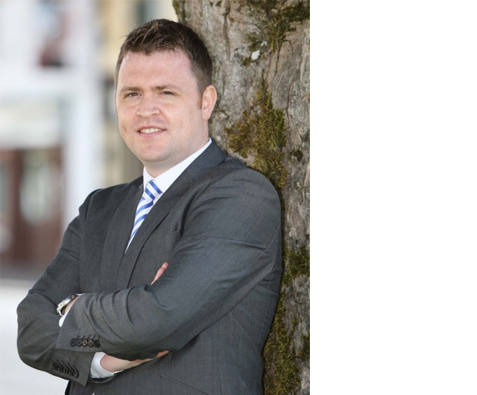ICOS Warning on Proposal for new EU Milk Levy

ICOS Warning on Proposal for new EU Milk Levy
(Download word doc of release here)
Levy proposal endangers expansion plans of Irish co-operatives and dairy farmers.
Friday 22nd March 2013: ICOS – the Irish Co-operative Organisation Society has formed a coalition of co-operative and farming organisations in 13 dairy producing countries to oppose dangerous proposals for a discretionary levy which the EU could use anytime to curtail milk production by dairy farmers – even though the milk quota system will be abolished in 2015 and the entire dairy industry is in fact poised for expansion.
ICOS affiliated organisations in Ireland have a combined turnover in excess of €12 billion and over 150,000 individual members, including the dairy processing co-operatives and livestock marts. Irish agricultural exports contribute over €9 billion to the Irish economy each year, of which dairy accounts for €2.7 billion, and the overall agri-sector accounts for 8% of national employment.
The proposal was first put forward in a report last year by French MEP Michel Dantin on Common Market Organisation. The report was passed by the Parliament’s Agriculture Committee. Last week, the EU Parliament voted by a small majority (57%) to adopt it for its official negotiations on CAP Reform.
Under this proposal, the EU Commission – in a crisis situation – could decide to grant aid for a period of at least three months to milk producers who voluntarily cut their production by at least 5% compared to the same period in the previous year. However, when granting such aid, the proposal says the EU Commission shall also decide to impose a levy on milk producers who increase their production by at least 5%.
ICOS European Affairs Executive Conor Mulvihill said: “The idea of a levy flies in the face of all reasonable expectations by the dairy industry that it will be in a position to expand organically post 2015.
“The Irish industry is investing millions of euro in future expansion plans. Farmers are also looking forward to future growth where the national aspiration of Food Harvest 2020 sees dairy output doubling when quotas are abolished. What the dairy industry needs is total clarity of purpose and direction. CAP Reform and quota abolition is attempting to achieve growth but any such levy proposal is contrary to that aim.
“This is something of a ‘solo run’ by the Parliament albeit for well-meaning reasons concerning market stability, but the proposal is not relevant to the current positioning and direction of the European dairy industry. Thankfully it is not included in the official CAP position of either the EU Commission or the Council of Ministers. The entire industry must therefore work to ensure that it does not progress and that it is not included in the final Common Agricultural Policy. We believe the proposal should be abandoned and proposals should instead be formulated to help farmers to market their products successfully.”
Arguments against levy proposal:
European dairy farmers will miss out on global demand: The proposal will prevent the EU dairy sector from benefiting from the increasing global demand for dairy products. The only effect would be that European farmers reduce their output while their competitors stay in the market. Especially in disadvantaged regions the proposal would increase structural change as the proposal gives incentives to least cost producers to reduce production and leave the sector.
Funding could prove costly: The funds to be used in order to operate the supply-management scheme would impose an unnecessary cost burden on the EU-budget, damaging dairy farmers. This is especially true if these funds are removed from the direct payment scheme funds.
Dairy farmers are expecting the milk quota system to end: Dairy farmers are currently planning their production on the expectation that the milk quotas will disappear in 2015. The proposal for supply-management would require the retention of the administrative framework for milk quotas, which raises doubts about the EU’s commitment to the abolition of quotas in 2015 and creates uncertainty for farmers.
Dairy farmers need clarity on the future dairy policy: The proposal is conflicting with the provisions of the milk package. A milk producer – who in accordance with the provisions of the milk package has signed a contract for a certain quantity of milk – will potentially lose his contract, if the supply management system restricts his milk production by a levy. Instead the provisions of the milk package should be transposed into regulations exactly as it was adopted.
The milk market needs an effective safety net: In special situations farmers need to be supported by public funds. We support the proposals for intervention and public storage. Additionally the direct payment help farmers as it takes effect as a direct income support.
Dairy farmers need to handle risks adequately: High price volatility forces farmers to handle the problem of individual risks. We encourage the European Parliament to consider the possibilities of assisting farmers in fighting and overcoming this volatility.
Prices & supply cannot be controlled on a global scheme: The EU dairy market now follows the price trend on the world market. Any regulation of production in the EU would be unlikely to be sufficient to affect global prices.
Find ICOS on the web www.icos.ie and Twitter http://twitter.com/ICOS_BXL
Ends
Media Information: Tim Kinsella, MKC Communications, 086 813 7512